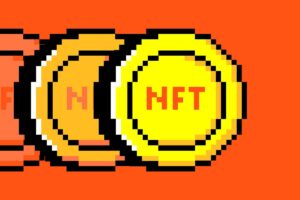South Korean Young Adults Burdened with Debt as Crypto Trading Increases – The Shib Daily Report

As of October 20, there has been a marked increase in the number of loan defaults among younger demographics in South Korea, a phenomenon many are associating with the surging interest in trading cryptocurrencies.
There is significant evidence hinting that particularly younger adults in their late teens and twenties are failing to meet loan obligations, with the issue being notably prevalent among digital-first neobanks that are integrated with cryptocurrency trading platforms.
On Thursday, the South Korean government unveiled plans to incorporate regular mental health evaluations for individuals aged 20 to 34 into the national health exam scheme from next year. https://t.co/FbjD67l4Yd
— The Korea Herald 코리아헤럴드 (@TheKoreaHerald) October 20, 2024
Increasing Default Rates in Young Neobank Customers
According to data communicated by K Bank, a neobank allied with the crypto exchange Upbit, 4.05% of its clientele under 30 years of age have failed to pay back loans. This disclosure is thanks to lawmaker Kim Jung’s appeal to the Financial Supervisory Service under the freedom of information act. The data suggests that young clients with crypto wallets linked to their bank accounts may have taken loans to pour into cryptocurrency investment but are presently facing challenges in repayment.
Reports by various South Korean news resources, for instance, Segye Ilbo and Digital Daily, highlight that the frequency of defaults among K Bank’s young customers surpasses that of other neobanks. Comparatively, Kakao Bank, which partners with Coinone, reported a default rate of 2.1% for clients under the age of 29, and Toss Bank, having no collaborations with local crypto exchanges, exhibited a default rate of 1.75%.
Neobanks in South Korea have absorbed losses totaling approximately $288 million due to defaults by youthful borrowers, marking a staggering 484% spike from December 2021. Trends indicate that this uptick in loan defaults is aligned with the growing number of young individuals partaking in cryptocurrency trading.
Need for Tighter Loan Vetting
Financial professionals remark that the predominant number of young loan defaulters who have tied their accounts to Upbit might have overextended themselves in cryptocurrency investments leading to repayment failures. Kim Hyun-jung, a participant in the National Assembly’s Political Affairs Committee, observed, “While there are positives to neobanks’ easy access to loans, they could also inadvertently entice the youth to incur debts that surpass what they can manage, exposing them to critical financial peril.”
Kim advocated for neobanks to apply firmer loan assessment criteria, emphasizing that improved vetting is imperative to avert potential complications. “Protective measures are needed to discourage youngsters from borrowing money that they cannot repay,” Kim added, highlighting the significance of curbing excessive borrowing tendencies in young cryptocurrency enthusiasts.
With K Bank on the cusp of a public listing scheduled for the end of October, it has registered a surge in account sign-ups among young South Koreans drawn to cryptocurrency trading. Nonetheless, this popularity comes with amplified issues related to loan defaults. As neobanks like K Bank evolve, their lending policies and the vulnerabilities related to their customers’ cryptocurrency trading ventures are increasingly becoming a focal point of concern.
Read More
Lawrence does not possess any cryptocurrency holdings. The information contained in this article is only for educational purposes and must not be taken as financial advice. Shib Magazine and The Shib Daily stand as the official media arms for the Shiba Inu cryptocurrency project. It’s recommended that readers do their own analysis and seek professional financial advice when making investment choices.
Source link
#South #Korean #Youth #Deep #Debt #Rise #Crypto #Trading #Report #Shib #Daily






